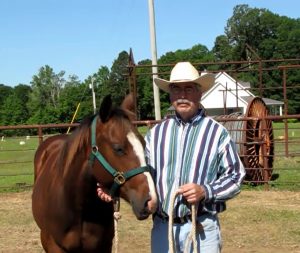Then all the elders of Israel gathered together and came to Samuel at Ramah; and they said to him, “Behold, you have grown old, and your sons do not walk in your ways. Now appoint a king for us to judge us like all the nations.” But the thing was displeasing in the sight of Samuel when they said, “Give us a king to judge us.” And Samuel prayed to the Lord. The Lord said to Samuel, “Listen to the voice of the people in regard to all that they say to you, for they have not rejected you, but they have rejected Me from being king over them. Like all the deeds which they have done since the day that I brought them up from Egypt even to this day—in that they have forsaken Me and served other gods—so they are doing to you also. Now then, listen to their voice; however, you shall solemnly warn them and tell them of the procedure of the king who will reign over them.” (1 Samuel 8:4-9)
What’s the deal with this passage? Although God spoke as though Israel was opposing His will in asking for a king, He told Samuel to listen to their voice and do what they asked. Samuel then warned the people of how a king would mistreat them, yet the elders still insisted they wanted a king.
This is an interesting passage. The elders of Israel seemed to be going against the Lord’s will in asking for a king. Yet, they were also seeking God’s will in the selection of a king. They didn’t just go out and anoint their own king. They asked the prophet, Samuel, to appoint a king over them.
Samuel complied, and based on God’s guidance anointed Saul to be king over Israel. Later, Saul disobeyed God, and God subsequently rejected Saul as king and had Samuel anoint David as king in place of Saul.
What’s going on here? If the elders of Israel are rejecting God in asking for a king, then why are they asking for God’s selection for a king?
Why did God first indicate He didn’t want Israel to have a king…then anoint Saul as king…then reject Saul as king…then anoint David as king? Does God really have that much trouble making up His own mind? Does God not know His own will? If it wasn’t God’s will for Israel to have a king, why did God tell Samuel to appoint a king?
In an attempt to make sense out of these apparent contradictions, some people explain this passage in terms of God’s divine will versus God’s permissive will. The general idea is that God has a perfect divine will He wants us to follow, but also has an imperfect permissive will he allows us to follow. So, they would say it was God’s divine will for Israel to not have a king, but in His permissive will God allowed them to have a king…and to suffer the consequences of their bad choice.
The whole divine will versus permissive will explanation doesn’t really make a lot of sense to me, though.
This perspective sets us up to try to view God as having multiple wills. Rather than helping us better understand the passage, I think it just makes it more confusing. How could God have a divided will when everything about Him is perfect? God knows all things and can clearly foresee future events before they happen. He is not constrained by time and space as we are. So how could He have a divided will, or how could He change is mind?
“God is not a man, that He should lie, Nor a son of man, that He should repent; Has He said, and will He not do it? Or has He spoken, and will He not make it good? (Numbers 23:19)

Archie – Our 2-year-old AQHA stud colt
Reading this passage reminds me of the evening I decided to train Archie, our young stud colt, to tail lead.
What I mean by the term tail lead, is simply that if I lightly pull a horse’s tail to the right, I would like him to step his hindquarters right. If I lightly pull his tail to the left, I would like him to step his hindquarters left. This is not usually considered a super important horse training lesson. A vast majority of horses go their entire lives without ever learning to tail lead and it doesn’t cause their owners any concern.
I’ve come to like teaching a horse to tail lead, mostly because it is useful when handling, grooming, maneuvering tight spots, etc. Most horses know how to step away from pressure applied by the handler. Sometimes, it is more convenient to ask the horse to step his hindquarters toward me (rather than away from me) and tail leading allows me to effectively communicate that intent.
Also, tail lead training is a good lesson in building communication between horse and handler. It’s just one of many…but the many small things add up over time to result in big changes for the horse.
On this particular day, I had Archie at our farrier’s barn along with several other horses. While our farrier was trimming and shoeing other horses, I decided to use my time to train Archie. The timing was intentional on my part. By teaching Archie something new while in an unfamiliar location, I was also helping him learn to focus on me and respond to my cues no matter where we are.
Holding Archie’s lead line in my left hand, I grasped his tail with my right hand. Then I firmly tugged on his tail. As expected, Archie promptly stepped his hindquarters right, away from me. I simply held the same tail pressure and moved with him.
Now, at this point, anyone watching me (like my farrier maybe?) might have questioned what I was doing and why. They might have wondered about my intent…my will for Archie’s behavior. I set out to teach Archie to step toward me when I lightly pulled his tail. Instead he was strongly resisting the pressure and continually stepping away from me…while I simply went with him.
After a few minutes of moving around in circles, Archie paused…and I promptly dropped his tail. I petted and praised him like he’d just won the Kentucky Derby! All he had actually done was stop moving away from me. Anyone watching me at this point might have wondered if that was my intent…for Archie to simply stand still when I tugged on his tail. I certainly praised him plenty for simply standing still for a moment!
Still holding the lead line in my left hand, I once again grasped Archie’s tail in my right hand and tugged. Again, he stepped his hindquarters right, away from me. Again, I simply went with him and waited until he paused moving. Again I promptly dropped his tail and praised him.
We did this several more times with the same results. Except, with each repetition it took him less time to stop moving. Each time he acted a little less bothered and was a little quicker to stop moving away from me.
Then, one time Archie only started to move away, before deciding to stand still. I simply held the same tail pressure. Again, he shifted his weight away and moved one hind hoof away…then he moved the hoof back to his left and I immediately dropped his tail and praised him.
Next time, Archie braced right without actually moving right. After a few seconds, he softened and tentatively stepped left. I promptly dropped his tail and praised him.
After a few more minutes practice, Archie got to where he would move left toward me fairly quickly when I tugged his tail.
Then I switched things up. I moved to Archie’s right side and repeated everything again, from the right side. We went through the same process from the right side, and after a few minutes Archie would step right to a right tail-pull.
Then I move back to Archie’s left side…and Archie was totally confused!
At that point he was totally lost on which way I wanted him to step when. He understood I wanted a step and he was willing to do what I asked, but he was very confused on the proper response to a cue from left or right.
So, we kept working on first one side and then the other until Archie was able to tell the difference between a left cue and a right cue…and the proper response to each.
At that point, Archie understood what I wanted and responded fairly well. However, his first response was to brace against the tug, before deciding to soften and go with me.
So, we continued to work on it with lighter and lighter cues.
By the time we quit for the night, I could stand to Archie’s left and lift his tail. Before I even applied any pressure, Archie would softly shift his weight left. Then when I actually started drawing his tail toward me, Archie would smoothly step over before any real pressure was even applied. And he responded just as softly and promptly working from his right side.
It was a really fun training session in which we accomplished all I had hoped for!
If anyone had been watching the entire training session, by the end it would have been pretty obvious Archie and I had accomplished what I had planned from the start.
Early on, that would not have been as obvious. The first time I tugged Archie’s tail, he stepped away from me and I simply went with him. At that stage, it didn’t look like I was teaching Archie to tail lead. It looked more like I was just letting Archie drag me around by his tail.
Then when Archie paused his movement for just a moment, I dropped his tail and profusely praised him, as though he had done exactly what I wanted…even though it wasn’t anything close to what I really wanted. If we paused the scene at that one spot, it would have looked as though I didn’t know my own mind and was doing a poor job of communicating my intent to Archie.
In actuality, I had a specific intent for that training session, and the entire session went according to my plan. Archie exercised his free will in accordance with his instincts throughout the whole training session. Yet I had anticipated his choices in advance and had already planned for them. Even as I allowed Archie to do what felt comfortable to him, I was working out my plan to bring about my will and purpose for Archie.
Furthermore, at no time in that training session was Archie rebellious toward me. Archie simply followed his natural instincts to respond to my cues in the way that felt most comfortable to him. Archie was not intentionally subverting my will. In fact, he seemed perfectly willing to do what I asked once he came to understand my intent and was allowed time to become confident doing what I asked.
The training session was never about punishing Archie or forcing him to conform to my will, nor was I ever angry with Archie. From start to finish, I worked with Archie in what was comfortable to him, even as I taught him to understand my desired response and helped him become comfortable doing what I asked. I broke the task into small training segments that Archie could understand and helped him learn one stage at a time until he had accomplished all I wanted for that training session.
I am a novice amateur horseman. Yet I was able to plan well enough to incrementally work out my will and purpose through my horse’s imperfect choices, to bring about my will in his life.
God is creator of heaven and earth…the great I Am…the one who is, who was, and who is to come. How much more can God incrementally work out His will and purpose through our imperfect choices, to bring about His perfect will in our lives!
Throughout the Old Testament narrative, a primary objective of God’s will was to bring a Savior into the world. The first messianic prophecy was given in the third chapter of Genesis, right after Adam and Eve ate the forbidden fruit, when God foretold the seed of woman would crush the serpent’s head. From there, God continued to unfold further revelations of His plans for the coming Messiah (Christ). Among those revelations are several prophecies that Messiah would be a descendant of King David, that He would inherit David’s throne, and that He would rule over all the earth.
This was God’s divine plan from the beginning.
God always wanted Israel to have a king. That King is Jesus Christ, direct descendant of King David and heir to David’s throne. What we see in 1 Samuel is the incremental unfolding of God’s divine plan being worked out through the imperfect choices of His people.
Samuel was offended the people wanted a king to take care of them. God simply went with them as they sought comfort in a king, much as I went with Archie as he initially moved away from me when I tugged his tail.
God personally selected a king based on what the elders were looking for. They wanted a strong domineering king who would build up an army by force and defeat Israel’s enemies in battle. God responded by giving them Saul, who was all they asked for.
Several years later, the people came to realize they wanted more from a king than what Saul offered. After Saul died in battle, they wanted a godly king…a king who pursued God’s heart…a king who acted justly and loved mercy. They were ready to covenant with David to be king. And, eventually, Jesus became heir to David’s throne.
God was not being double minded nor was He changing his mind. God simply worked with the elders of Israel from their perspective at that time, to bring about His perfect will in their lives, through their imperfect choices.
This is what God does. This is what God still does, today, in the lives of His children.
God works thru the imperfect choices of His children to bring about His perfect will. Click To TweetPerhaps someone reading this post is in an abusive relationship. Perhaps you have been living in quiet despair, believing you must have taken a wrong turn and made choices outside God’s will for your life. Perhaps you have stopped believing God’s best plan for your life is even a possibility and have simply been hoping for some measure of God’s mercy in trying to live out a second-best life in God’s “permissive” will. Perhaps you have even started to believe maybe you deserve the abuse as punishment for your wrong choices.
If that’s the case…if you are in a situation similar to what I have described…then let me assure you God’s perfect plan for your life is not off track. Nothing you have done has taken God by surprise. He has known His plan for you from the beginning and is continuing to bring about His purpose for you through your imperfect choices. Just as I worked with Archie from where he was, God is working with you from where you are. If you belong to Christ, you can trust Him to bring about His perfect plan for your life. And God’s perfect plan includes your walking in liberty in Christ, free of any abusive covenants of bondage.
God established Saul as king over Israel based on their imperfect choices. Yet, when the time was right, God removed Saul from the throne and established David as king…with the ultimate goal of establishing Jesus as king.
You can trust God to do the same for you. God is faithful!


